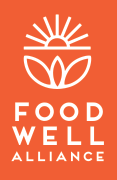Compost Leaders Identify Educational Training As A Way To Scale Community-Based Composting in Atlanta
/Local food movement leaders working together to solve issues to increase production of sustainably grown, locally produced food identified developing a training program as one of the ways to increase community-based composting in Metro Atlanta.
Food Well Alliance’s latest Working Table gathered during a February 10 meeting to prioritize strategic opportunities to scale community-based composting in the city.
The group also crafted a shared vision to help transform community-based composting (under five key segments within the compost ecosystem, including: diversion of organic material to small community-based processors; transportation and logistics; processing; distribution and end use.)
Based on the key challenges the members identified in the previous meeting - such as contamination, land access and regulatory uncertainty - leaders collaborated to define solutions to these challenges.
The solutions included leveraging the expertise of key local food movement stakeholders to develop a best practices guide for compost generators, who are organizations that produce the organic material needed to make compost.
Other solutions addressed compost generators creating a training program with a certification requirement and creating possible state and local tax incentives.
The group’s next convening will be the Community-Based Composting Working Table’s final meeting where they will make strategic recommendations for scaling community-based composting in Metro Atlanta..
Check back here for the Community-Based Composting Strategic Recommendations.




